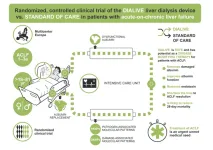Chemotherapy-induced peripheral neuropathy (CIPN) – nerve pain, tingling, or numbness in the hands or feet – is a common side effect of certain cancer treatments, including two drugs frequently used to treat cancer – the taxanes paclitaxel and docetaxel. Initial results from a large study that tracked CIPN in more than 1,100 patients treated for breast cancer with a taxane show a pattern of clinically meaningful, persistent sensory and motor symptoms, with patients experiencing more severe symptoms with paclitaxel than with docetaxel.
These initial results from the SWOG S1714 clinical trial are being reported in an oral presentation at the 2023 annual meeting of the American Society for Clinical Oncology (ASCO) in Chicago on June 5th (abstract 12003).
Senior author on the abstract Michael J. Fisch, MD, clinical professor at the University of Texas MD Anderson Cancer Center, said “These results from SWOG S1714 are highly relevant because taxanes such as paclitaxel and docetaxel are integral to our treatment of breast cancer. Peripheral neuropathy due to these drugs is familiar but poorly understood. Importantly, neuropathy symptoms were assessed not only by clinicians but also from the patient’s perspective using the CIPN-20 questionnaire.”
S1714 was a prospective observational cohort study to develop a predictive model of taxane-induced peripheral neuropathy in patients with cancer. It enrolled 1,336 patients with either non-small cell lung cancer, breast cancer, or ovarian/fallopian tube cancer who were receiving treatment with paclitaxel or docetaxel. The ASCO abstract reports data from 1,103 participants with breast cancer followed through their first 24 weeks after trial registration.
All patients enrolled on S1714 were evaluated for symptoms of peripheral neuropathy before treatment and again after 4, 8, 12, 24, 52, 104, and 156 weeks from registration. Patients underwent neurosensory testing and functional testing, and clinicians assessed them for CIPN symptoms using the NCI’s Common Terminology Criteria for Adverse Events (CTCAE).
Patients also completed their own self-assessment using an established patient-reported outcome measure, the EORTC QLQ-CIPN20 questionnaire, which scores symptoms overall on a 100-point scale, with higher scores indicating worse symptoms. Multiple studies have found that patients with CIPN experience a 7-10 point increase in their sensory subscale score on this survey. S1714 defined a sensory subscale score increase of 8 points or more as a clinically meaningful worsening of the symptom.
Through 24 weeks, patients with breast cancer enrolled to S1714 experienced clinically meaningful and persistent sensory and motor symptoms. Over 40 percent of patients receiving paclitaxel or docetaxel experienced a clinically meaningful increase in the CIPN-20 sensory subscore at 24 weeks. At nearly every timepoint through 24 weeks, patients treated with paclitaxel had more sensory neuropathy than patients treated with docetaxel.
Paclitaxel and docetaxel are standard treatments for early-stage breast cancer. Both can lead to CIPN, but differences in symptoms caused by the two drugs have not been well described previously.
Currently, factors such as a patient’s age, preexisting neuropathy, and previous paclitaxel exposure are considered to be strong predictors of CIPN. The larger goal of the SWOG S1714 study is to develop a risk prediction model that can help doctors individualize patient care using common clinical factors. In addition, the S1714 team collected blood samples from all enrolled patients at multiple timepoints, and they are now analyzing a range of biomarkers to identify additional predictors. The team will also assess the effects of dosing frequency and dosing modifications on CIPN symptoms.
“There is a need to better understand CIPN, as it has the potential to impact patient outcomes and quality of life,” said Meghna S. Trivedi, MD, MS, of the Columbia University Herbert Irving Comprehensive Cancer Center. Dr. Trivedi leads the study and will present the results at the ASCO meeting.
“S1714 was designed to collect the data and specimens to allow us to better characterize CIPN so that we can not only individualize cancer treatment strategies but also identify novel interventions for the prevention and treatment of CIPN,” Dr. Trivedi added.
Study S1714 is supported by the National Cancer Institute (NCI), part of the National Institutes of Health (NIH), led by SWOG, and conducted by the NIH-funded NCI Community Oncology Research Program (NCORP).
S1714 was funded by the NIH/NCI through grants UG1CA189974 and R37CA277043 and in part by The Hope Foundation for Cancer Research.
In addition to Drs. Trivedi and Fisch, the S1714 study team included Joseph M. Unger, SWOG Statistics and Data Management Center and Fred Hutchinson Cancer Center; Dawn L. Hershman, Columbia University; Amy Darke, SWOG Statistics and Data Management Center and Fred Hutchinson Cancer Center; Daniel Louis Hertz, University of Michigan; Thomas Brannagan, Columbia University Medical Center; Stephanie Smith, Lewis Cancer & Research Pavilion at St. Joseph's Candler/Georgia NCORP; Bryan P. Schneider, Indiana University; William Johnson Irvin Jr., Bon Secours Cancer Institute at St. Francis; Amanda Redden Hathaway, University Cancer & Blood Center; Amy C. Vander Woude, Cancer & Hematology Centers of Western Michigan; Vinay K. Gudena, Cone Health Cancer Center; and Norah Lynn Henry, University of Michigan Rogel Cancer Center.
SWOG Cancer Research Network is part of the National Cancer Institute's National Clinical Trials Network and the NCI Community Oncology Research Program and is part of the oldest and largest publicly funded cancer research network in the nation. SWOG has more than 18,000 members in 45 states and nine foreign countries who design and conduct clinical trials to improve the lives of people with cancer. SWOG trials have led to the approval of 14 cancer drugs, changed more than 100 standards of cancer care, and saved more than 3 million years of human life. Learn more at swog.org, and follow us on Twitter at @SWOG.
Reference:
“Chemotherapy Induced Peripheral Neuropathy (CIPN) due to Paclitaxel versus Docetaxel in Patients with Early-Stage Breast Cancer Receiving Taxane Therapy: SWOG S1714 (NCT# 03939481).” ASCO 2023 oral presentation, June 5, 2023, 8 – 11 am CT (abstract 12003).
END



